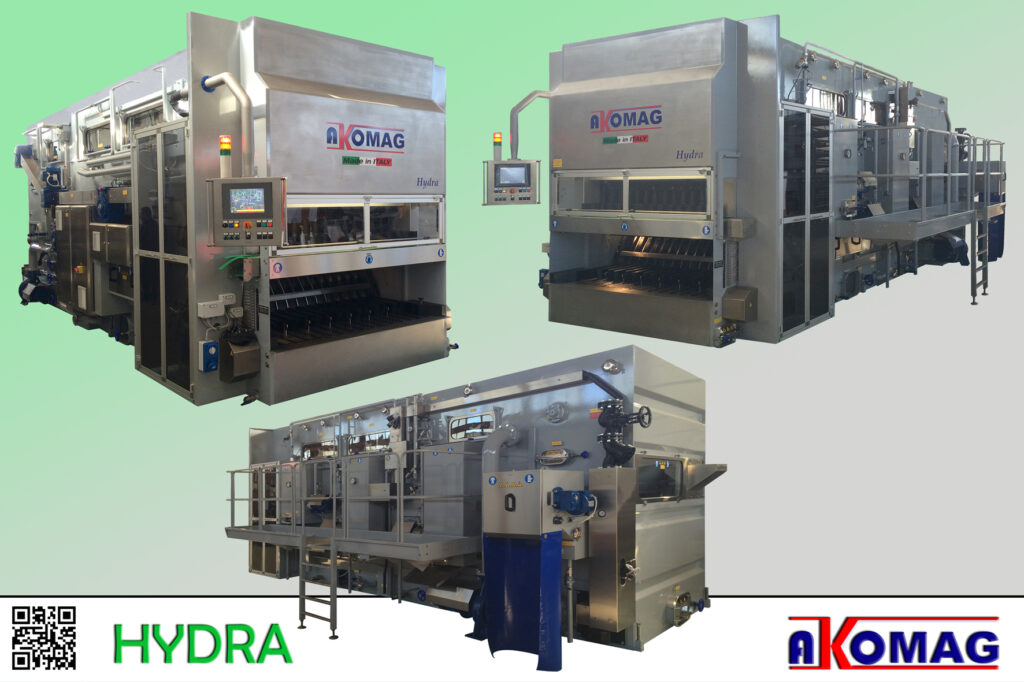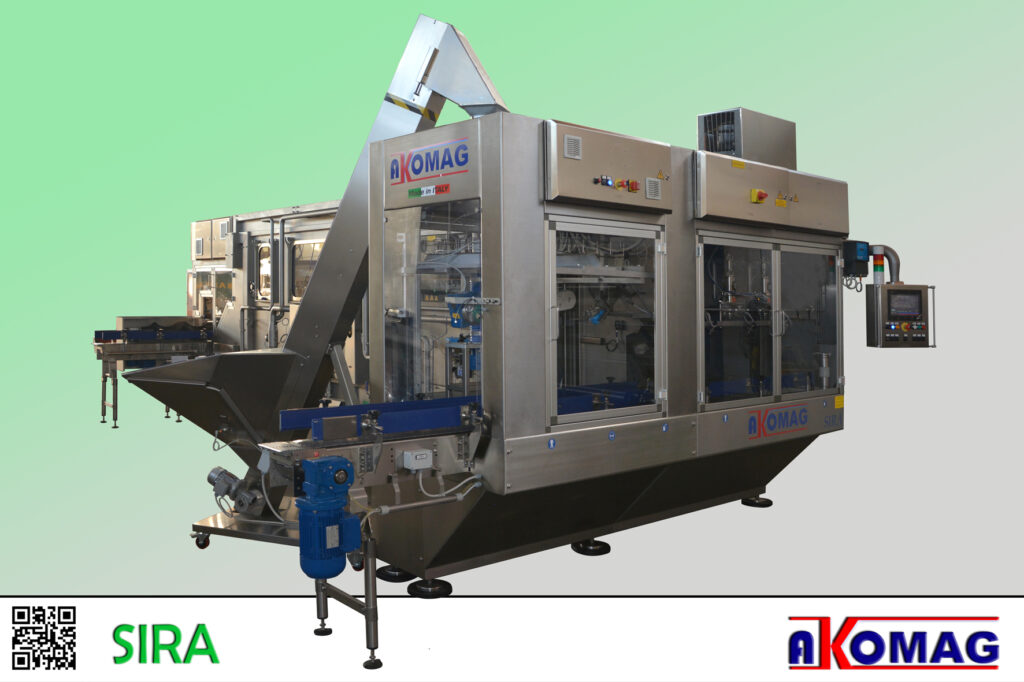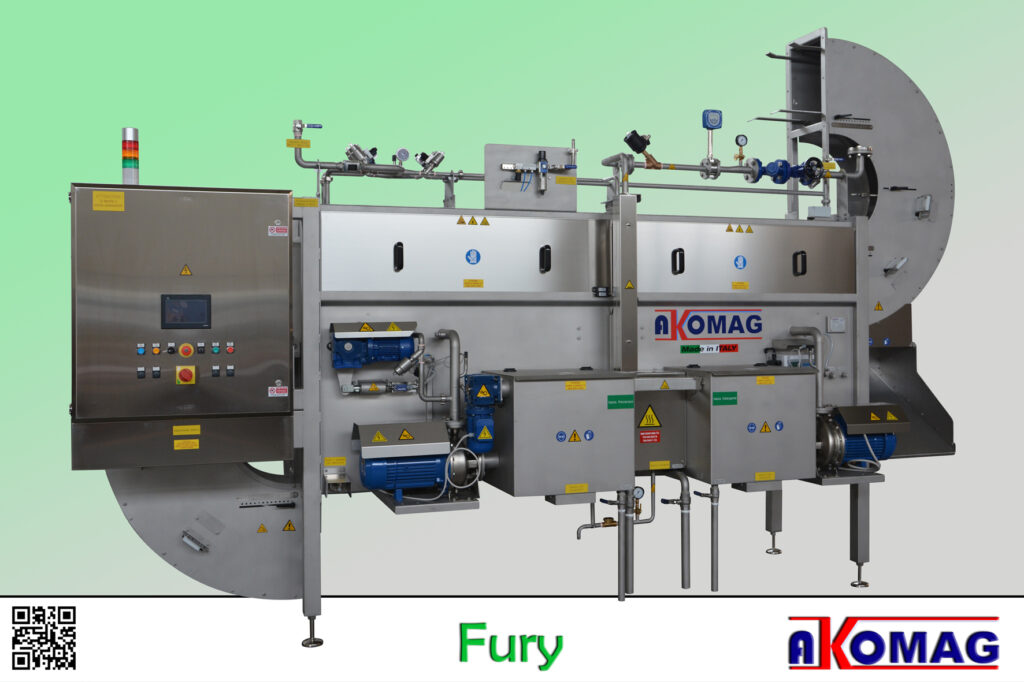 Essential to guarantee a quality end-product, washing empty and recycled bottles before bottling is the best way to avoid the risk of contamination, but also an ecological choice.
Essential to guarantee a quality end-product, washing empty and recycled bottles before bottling is the best way to avoid the risk of contamination, but also an ecological choice.
The strict cleaning and disinfection programs that the food and beverage industry follows during the production process make it possible to eliminate all types of contamination. But ensuring safe hygienic conditions means implementing procedures to eliminate the proliferation of micro-organisms and pathogens even during packaging. Since bottling and filling are the last steps in which the product can be microbiologically contaminated, it is essential for bottlers to rely on washing machines with guaranteed results.
Like those produced by Akomag, for example, an Italian company that makes glass recovery a modus operandi to save on costs and waste. From a small artisanal company that grew up in the province of Parma, in a few years Akomag has become an important partner of the most quoted bottlers of the international scene. It designs and builds technologically advanced washers for bottles and flasks, rinsers, sterilizers and case-washers “at an affordable and competitive price”, guarantees Marco Triluzi, Managing Director.
“Today we can count on a staff of twenty-five working on a covered area of over 3000 m2 dedicated to production. Furthermore, we can count on a network of external collaborators for the production of design parts to be assembled on our machines. An agile and compact structure, therefore, which allows us to build machines for any medium- and high-productivity application”.
 From bottle washers to filling and capping monoblocks
From bottle washers to filling and capping monoblocks
From 2000 to today, Akomag has acquired design skills and experience in the construction of machines for all bottling sectors (beverages, juices, wine, beer, spirits, oil etc.), for new or recycled containers and for all production needs. For small productions, for example, the Genesi series is ideal thanks to a speed ranging from 500 to 4000 bottles/h. Taurus covers the medium-low range (from 1500 to 6000 bottles/h), while Hydra is intended for the medium-high range (up to 50.000 bottles/h) and Hydra HP (High production) reaches up to 60.000 bottles/h.
The Genesi continuous-cycle bottle washers adapt to any factory thanks to their small size and modular construction. They are extremely versatile, and their effective washing cycle can guarantee excellent washing results with perfectly cleaned bottles. The same qualities characterize Taurus, which, however, targets higher productivity. Hydra stands out among the latest generation of automatic machines, designed for medium to high production of customers who are more attentive to technological evolution.
 The washing cycle – including an initial bottle-emptying station followed by a pre-wash spraying and first pre-soak bath – guarantees optimal results. Hydra HP is the top of the range, highlighting Akomag’s ability to build bottle washers. The series guarantees an automated washing process which can be controlled by a single operator guided by the on-board systems.
The washing cycle – including an initial bottle-emptying station followed by a pre-wash spraying and first pre-soak bath – guarantees optimal results. Hydra HP is the top of the range, highlighting Akomag’s ability to build bottle washers. The series guarantees an automated washing process which can be controlled by a single operator guided by the on-board systems.
Akomag is not just about bottle washers. In fact, the range also includes water rinsers such as Pixis (immersion treatment of new glass containers), automatic case washers such as Fury, available for many production needs, and monoblocks such as Sira. Designed and built to wash, fill and cap three to six gallon PET flasks, the monoblock is available in automatic or semi-automatic versions.
Whether it’s machines or monoblocks, “all of our solutions combine ease of use and quality with a modern and attractive design,” says Triulzi. “They are more compact than others on the market, maintenance is easy and quick, with guaranteed materials and components. Akomag machines are custom-made, produced in close co-operation with the customer. Because mass production is not in our DNA”.
Glass recovery
Washing used glass containers and putting them back into the production cycle is an ethical choice Akomag has made for a long time now. For a number of benefits that start with the increase in revenues and end with the reduction of:
- waste
- running costs
- mass of transport
- CO2 emissions
- air pollution
- personnel involved in the cycle.



